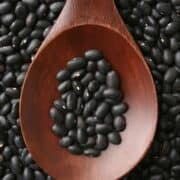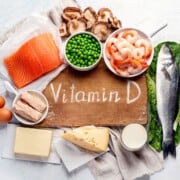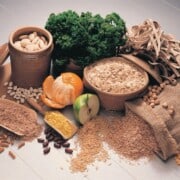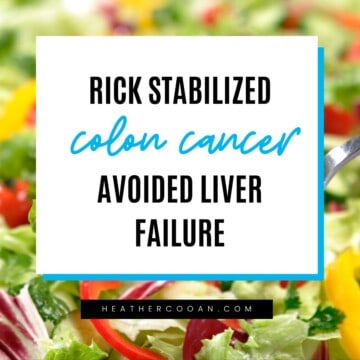
I have PCOS. What Should I Eat? Let's talk PCOS diet tips...
If you are among the one in ten women with polycystic ovarian syndrome (PCOS), you’ll know that losing weight on PCOS is hard. The hormonal imbalance that comes with PCOS comes with metabolic issues. But that doesn’t mean a healthy weight is impossible! Here’s how PCOS affects your metabolism and thus your diet, and what you can do to get your weight under control.
How Does PCOS Affect My Diet?
PCOS manifests as a hormonal condition, which means it affects a ton of processes in your body. This hormonal dysfunction makes it difficult to lose weight for two reasons:
Metabolic Dysfunction
Your metabolism is what converts your food and drinks into energy. If your metabolism is normal, it means the number of calories you eat in a day are burned efficiently. But those with PCOS have a slower metabolism, which means we don’t burn calories as efficiently. (1)
Insulin Resistance
Part of the reason that PCOS makes our metabolisms slower is its co-occurrence with insulin resistance. Insulin is another hormone that controls how the body metabolizes sugar: “When blood glucose, also called blood sugar, levels rise after you eat, your pancreas releases insulin into the blood. Insulin then lowers blood glucose to keep it in the normal range.” (2)
You may have heard the term insulin resistance. Insulin resistance is a key feature of PCOS. It means that your body can’t metabolize the glucose in your food, so your pancreas makes too much insulin. (2)
Because insulin resistance is related to prediabetes and diabetes - both of which can lead to heart disease - it’s important for your health and longevity to get your insulin levels checked.
The Glycemic Index
You may have heard of the Glycemic Index (GI) Diet. The Glycemic Index is “a value assigned to foods based on how slowly or how quickly those foods cause increases in blood glucose [blood sugar] levels.” (3)
The Glycemic Index diet can be advantageous for managing blood sugar - and therefore insulin - in PCOS or otherwise insulin-resistant women. Foods high on the Glycemic Index include:
- White carbs (pasta, bread, rice, and russet potatoes)
- Pumpkins
- Melons
- Pineapple
- Pretzels
- Popcorn
And low-GI foods include:
- 100% whole wheat bread
- Wheat pasta
- Brown rice
- Non-starchy fruits and vegetables
- Peas, beans, legumes, and lentils (4)
Ketogenic Diet for PCOS
If you're noting that the GI diet may cause you to cut back or cut down on carbs, you're right! Because of its low carb content, the ketogenic diet can be a great way to lose or maintain weight. A ketogenic diet aims to put your body into ketosis: a state where cells burn fat from your food instead of carbohydrates. This means that the keto diet focuses on calories from protein and fats rather than sugar and starches.
In one study of five women with PCOS on a keto diet, “there were significant reductions from baseline to 24 weeks in body weight (-12%), percent free testosterone (-22%), LH/FSH ratio (-36%), and fasting insulin (-54%). There were non-significant decreases in insulin, glucose, testosterone, HgbA1c, triglyceride, and perceived body hair. Two women became pregnant despite previous infertility problems.” (5)
What About Heart Disease?
PCOS and other forms of insulin resistance have a high co-occurrence with heart disease, so you may hear “fat and protein diet” and become concerned for your heart. However, recent studies have disproven the link between a diet high in fat and heart disease. If it helps you lose weight, it will be better for your heart in the long run.
That said, with its lower emphasis on fruits and vegetables, vitamin and mineral deficiencies are potential long-term effects of a keto diet. Taking a multivitamin in addition to your keto diet can be a big help! (6)
Other Tips for Managing PCOS
Here are some other tools you can take advantage of to maintain a healthy weight with PCOS:
- Lower stress: Cortisol, the body’s main stress hormone, increases when the body is stressed. This makes it harder for the body to burn energy. (7)
- Exercise: In addition to its weight loss benefits, exercise helps maintain the health of your heart. This can help fend off heart disease.
- Medication: The diabetes medication metformin, as well as the supplement berberine, can help PCOS patients control their blood sugar, and can, therefore, aid in weight loss. (8)
- Seed Cycling: Utilizing seeds like sunflower, chia, and pumpkin strategically can help you balance hormones naturally.
While losing or maintaining weight on PCOS can be challenging, it isn’t impossible! There are several ways to address the problem. And diet, exercise, and stress relief will all help improve your quality of life even beyond your illness.
Resources:
- Laganà AS, Rossetti P, Buscema M, La Vignera S, Condorelli RA, Gullo G, … Triolo O. Metabolism and Ovarian Function in PCOS Women: A Therapeutic Approach with Inositols. International journal of endocrinology [Internet]. 2016; 6306410. Available from: https://www.ncbi.nlm.nih.gov/pmc/articles/PMC4989075/ DOI:10.1155/2016/6306410
- Insulin Resistance & Prediabetes. National Institute of Diabetes and Digestive and Kidney Diseases [Internet]. May 2018. Available from: https://www.niddk.nih.gov/health-information/diabetes/overview/what-is-diabetes/prediabetes-insulin-resistance
- Glycemic index for 60+ foods. Harvard Health Publishing [Internet]. March 2018. Available from: https://www.health.harvard.edu/diseases-and-conditions/glycemic-index-and-glycemic-load-for-100-foods
- Glycemic Index and Diabetes. American Diabetes Association [Internet]. May 2014. Available from: http://www.diabetes.org/food-and-fitness/food/what-can-i-eat/understanding-carbohydrates/glycemic-index-and-diabetes.html
- Mavropoulos JC, Yancy WS, Hepburn J, Westman EC. The effects of a low-carbohydrate, ketogenic diet on the polycystic ovary syndrome: a pilot study. Nutr Metab (Lond) [Internet]. 2005;2:35. Available from: https://www.ncbi.nlm.nih.gov/pmc/articles/PMC1334192/#__ffn_sectitle DOI:10.1186/1743-7075-2-35
- Masood W, Uppaluri K. Ketogenic Diet. StatPearls [Internet]. 2018. Available from: https://www.ncbi.nlm.nih.gov/books/NBK499830/
- Chang L (MD), Reviewer. What Is Cortisol? WebMD [Internet]. 2018. Available from: https://www.webmd.com/a-to-z-guides/what-is-cortisol
- Metformin HCL. WebMD [Internet]. Available from: https://www.webmd.com/drugs/2/drug-11285-7061/metformin-oral/metformin-oral/details



















Tell Me What You Think